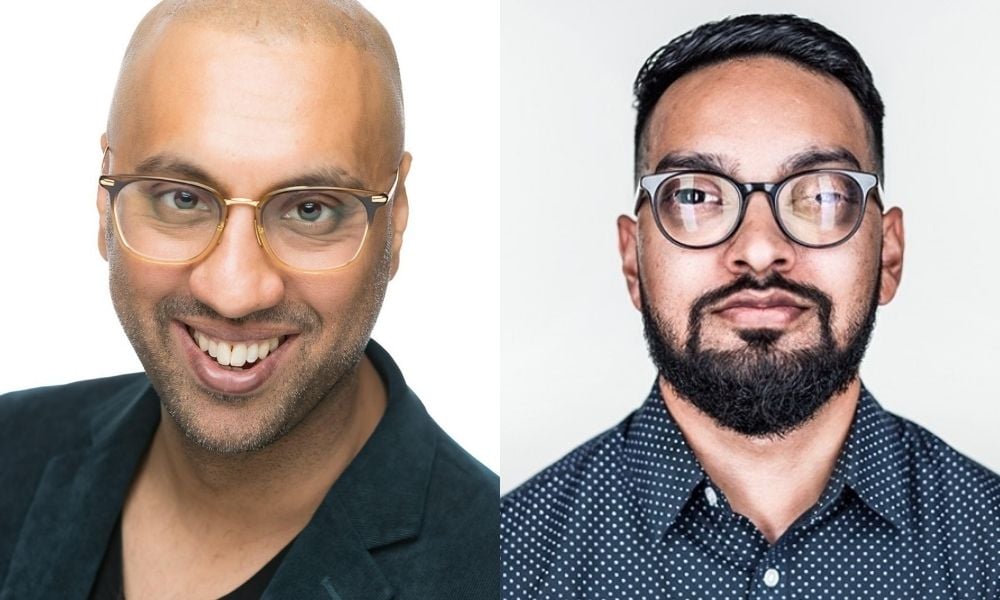
Dialogue provides chance to engage with Muslim students requiring accommodation: student group head

After the Law Society of Ontario discovered a potential leak of assessment questions, the online barrister and solicitor examinations were rescheduled from March to be in person next month. While lawyers acknowledge the severity of the issue causing the delay, critics have questioned the decision to reschedule during Ramadan.
Omar Ha-Redeye, a lawyer at Fleet Street Law, says these concerns highlight the difficulty of scheduling in a multicultural society.
The pandemic has been a tough time for everybody, and Ha-Redeye says that the very unusual circumstances of the cancelled exam and misconduct allegations will understandably exacerbate the preparation stress for candidates.
“The new scheduling date is during a time when some members of the candidate pool are going to be under their own pressures and stresses because of religious observances that involve not eating or drinking anything throughout the day. So that makes for a challenging circumstance.”
Ha-Redeye cites the 2019 federal court decision of Aryeh-Bain v. Canada (Attorney General), which involved a challenge to the 2019 federal elections scheduling because it was during a Jewish holiday. The court held that there would have been other religious holidays that other religions would have implicated regardless of whether there were alternative dates.
There were advanced polls, and the court highlighted that people could still vote through mailing and other polling methods that did not fall on that specific holiday. Ha-Redeye says it is difficult in a multicultural society to accommodate the full participation of all members.
The next day to write the exam might be June. He says that those additional months for candidates who defer their exams will not significantly impact their careers as the legal community gets past these current hurdles.
“For individuals who don’t want to write Ramadan because that’s difficult, it really is a relatively short delay.”
External investigators also indicated there was evidence that the licensing exams, which went online in June 2020 due to the pandemic, may have also been compromised in previous sittings. This discovery caused the LSO to put some previous candidates’ call to the bar on hold pending the investigation.
Arshad Auckbarallee, the president of the Muslim Students Association of Lawyers at Lincoln Alexander law school, hopes the LSO sees this as an opportunity to consult more with Muslim students and other groups in the future. Some of these students may be fasting or practising any aspects of their faith or personal practices and may require some accommodation, says Auckbarallee.
“I hope that there is an open dialogue to try to promote inclusive and equitable test writing conditions for this exam and all exams.”
The LSO is trying to protect the ethical dimensions of the most crucial exam a lawyer must take, and he says the rescheduling was reactionary.
“This happened so quickly, and for Muslim law students about to write the bar exam, perhaps they haven’t been given a chance to prepare mentally and physically for having to write two very long exams while fasting.”
Across the country, law schools have recognized that students will be writing exams during Ramadan and are working in different ways to accommodate them. Auckbarallee hopes the law society can also engage in a similar dialogue with their MLSAs and other respectable organizations for future exams.
“Whether an individual chooses to fast or not, that is up to them,” he says, “how they practise their faith, and the complexity of having to write an exam when fasting is not easy,” making sure that the playing field is levelled for everyone is vital.
With the exams now in person, he says, “others may get a chance to slip their mask down and take some sips of water, but the fasting student won’t.”
The LSO released a statement saying it recognizes that Ramadan is observed by practising Muslims as a time of fasting, prayer, reflection & community and is committed to supporting licensing candidates to uphold the principles of diversity & inclusion and its duty to accommodate.
“Candidates may request an accommodation based on the observance of Ramadan or any of the grounds outlined in the Human Rights Code.”